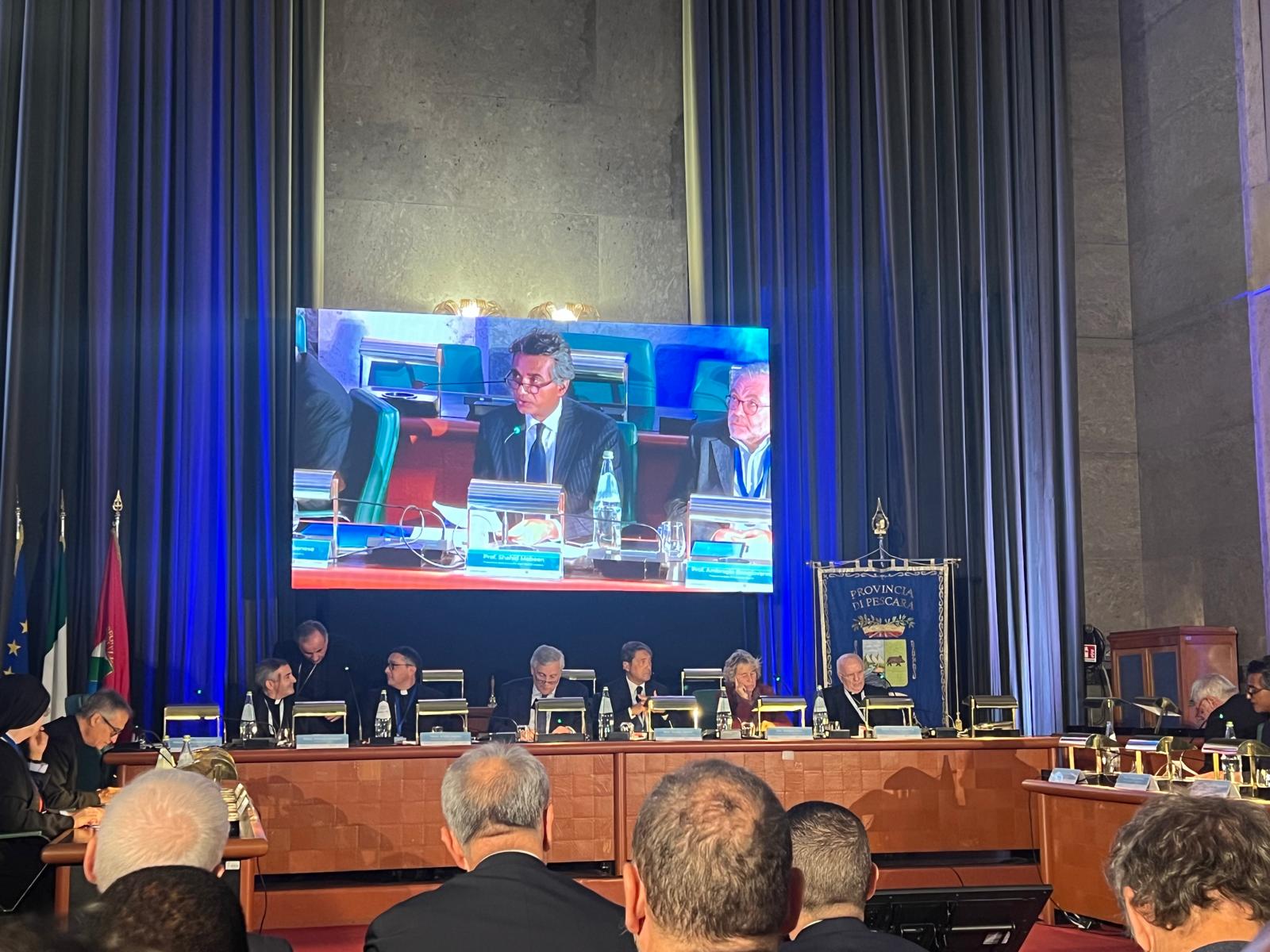By: Shahid Mobeen
Religious freedom, enshrined in Article 18 of the Universal Declaration of Human Rights, is fundamental to peaceful coexistence and the development of nations. Yet, we continue to witness a troubling rise in the persecution of Christians and other religious minorities, targeted for their faith. In response, Italy established the Italian Consultation for Religious Freedom, working alongside Dr. Davide Dionisi, the Special Envoy for the Protection of Religious Freedom, to champion the rights of Christian communities worldwide. This initiative joins global efforts led by civil society groups, parliamentarians, and diplomats, all committed to defending religious freedom and supporting persecuted minorities.
Countries like those in the G7, with their significant political and economic clout, hold a crucial role in these efforts. By prioritizing religious freedom in international cooperation projects, they can contribute to justice, stability, and security on a global scale. But within this larger context, the contributions of Christian missionaries, particularly from Italy, cannot be overlooked. Catholic missionaries—priests, religious, and laypersons—continue to be present in nearly every corner of the world, adapting their work to local needs and realities while serving both Christian and non-Christian communities alike.
At the heart of missionary work is the belief in the inherent dignity of every person, a concept rooted in Christian theological anthropology. Missionaries engage in both spiritual and practical ways, driven by the values of faith, hope, and charity. By living out these virtues, they bring to life the presence of Christ in every encounter, exemplifying the tenets of Christian love through both word and deed.
This work often unfolds far from the centers of political and economic power, where institutions and secular governments must also step in to support human dignity. As Pope Francis noted in Fratelli Tutti, achieving a world where fraternity thrives requires “the best politics,” a politics that serves the common good rather than hindering progress toward a more just world.
From a philosophical perspective, the work of missionaries intersects deeply with Christian anthropology. The 20th-century philosopher and saint Edith Stein provides a profound framework for understanding human identity and otherness. Stein’s dual anthropology, rooted in the metaphysical nature of the human person, emphasizes that our personal and communal identities emerge through the dynamic interaction between self and other. For her, empathy is the bridge that allows individuals to truly encounter and understand one another—an essential aspect of missionary work. This concept resonates deeply with Christian ethics, which call for unity and compassion, especially in a world divided by ideologies that deny basic rights like religious freedom.
Stein’s insights are echoed in the work of Hedwig Conrad-Martius, another notable Christian philosopher. She developed a metaphysical view of reality that merges classical philosophy with Christian thought. Conrad-Martius emphasized that human life is a process of transformation—an idea central to the work of missionaries who strive to foster change not only on a spiritual level but in the very fabric of society.
Missionaries play a transformative role in both the personal and communal lives of those they serve, and their work is often commemorated by those who have undergone profound changes through their influence. Figures such as Saint Josephine Bakhita of Sudan, Shahbaz Bhatti of Pakistan, and Saint Maximilian Kolbe of Poland stand as powerful testimonies to the enduring impact of missionary outreach.
In a world increasingly divided by religious and ideological conflict, the role of Christian missionaries—rooted in a deep respect for human dignity and the freedom of belief—remains a beacon of hope. Their work, informed by centuries of Christian philosophical thought, continues to shape individuals and societies, reminding us of the universal call to justice, compassion, and understanding.



Pls subscribe me.
I strongly/thoroughly/firmly believe.🙏🙏🙏
A lovely article that provokes ideas and discussion.
There is a fine line between serving humanity and creating a dependency of people and groups that look up to missionaries as a sign of hope.
Hope does not arise from deprivation or needs; but rather the fact they themselves have not tried enough. It is a short cut.
I would view discrimination against minorities and ethnic groups from twin perspectives.
First, reluctance of Civil Society to be inclusive thereby promoting ghettoism. Secondary, church institutions just as much damage by maintaining this social isolation to preserve the elite and church power. I feel the second is more destructive.